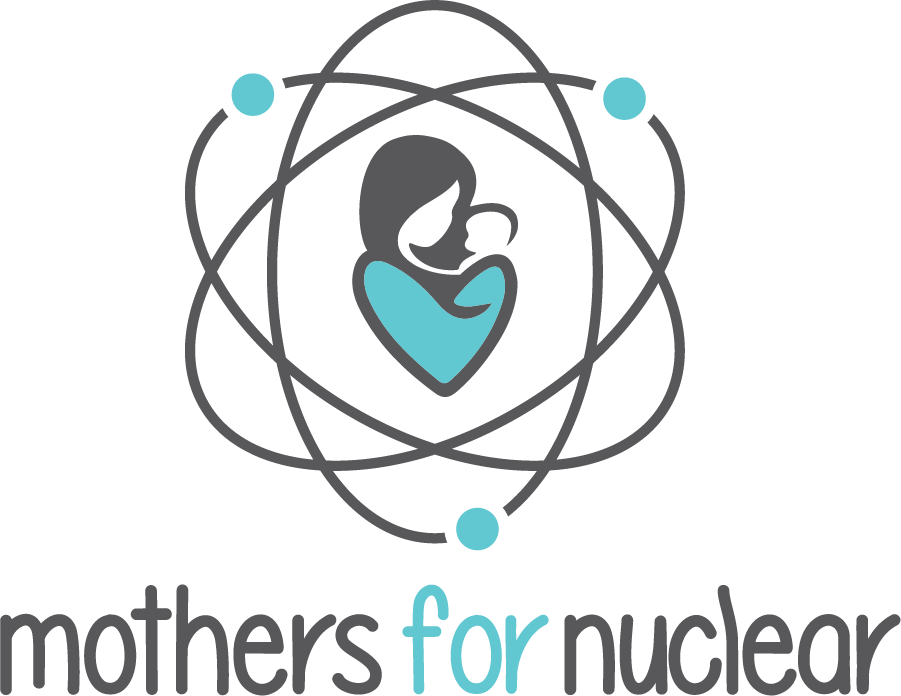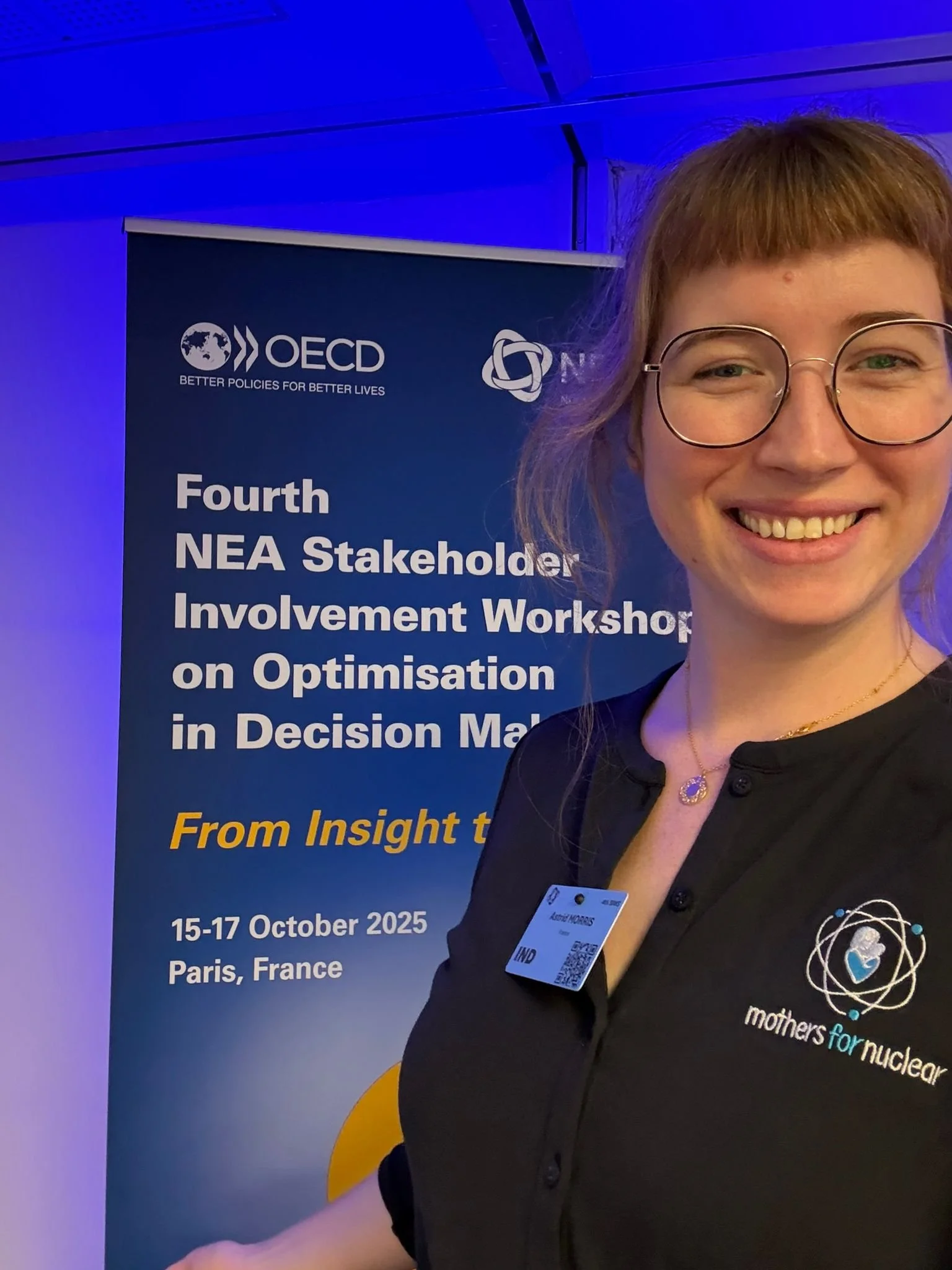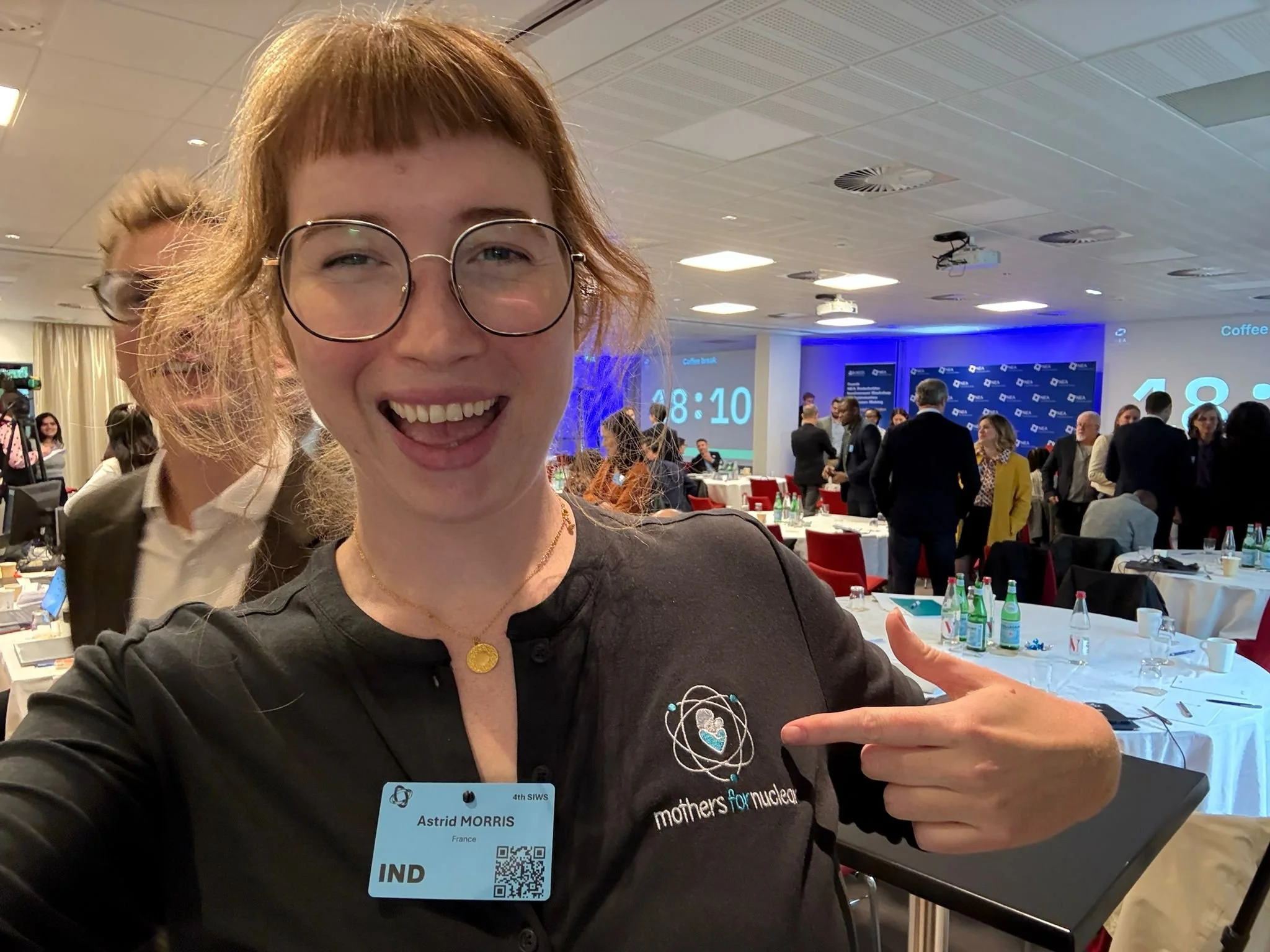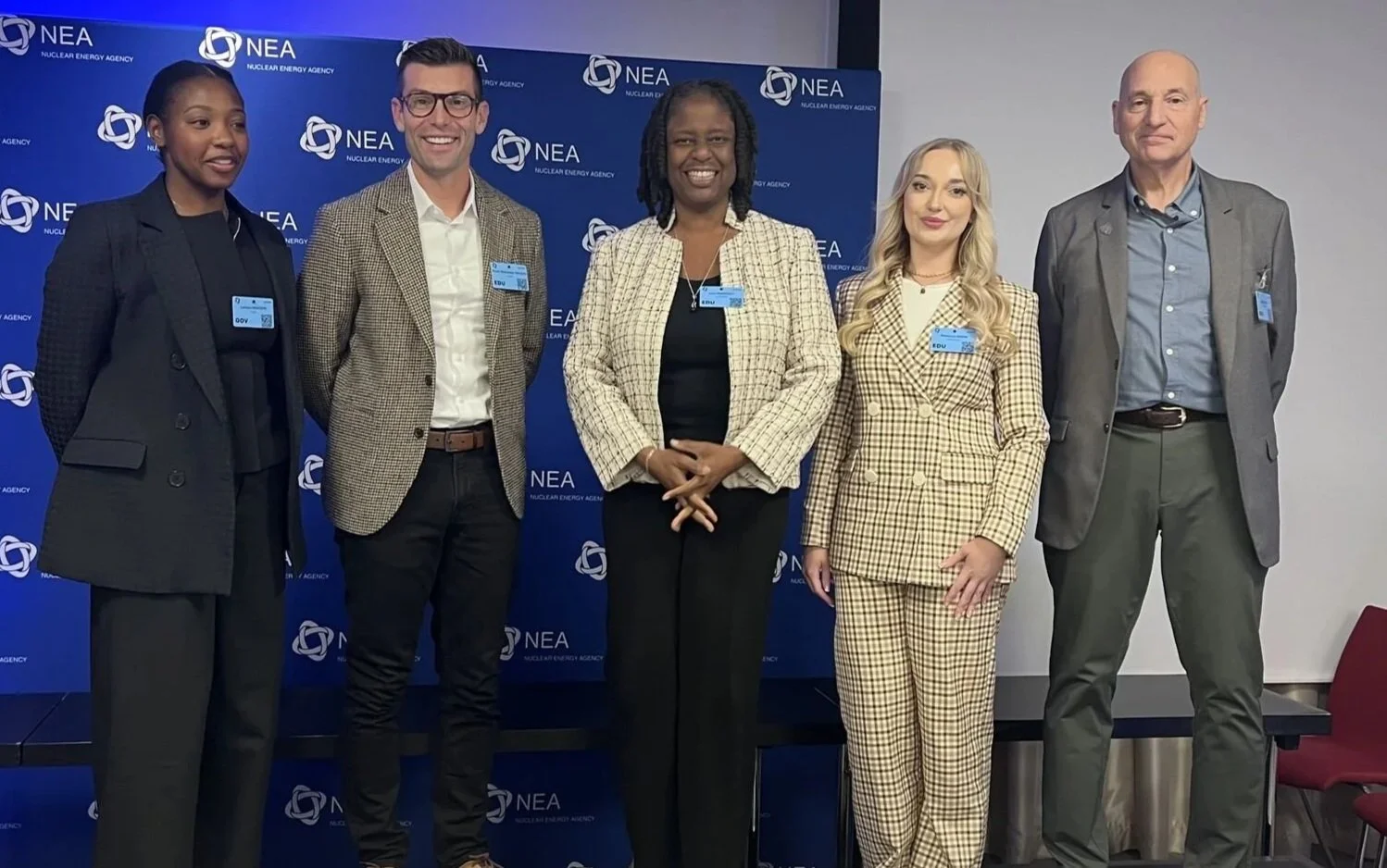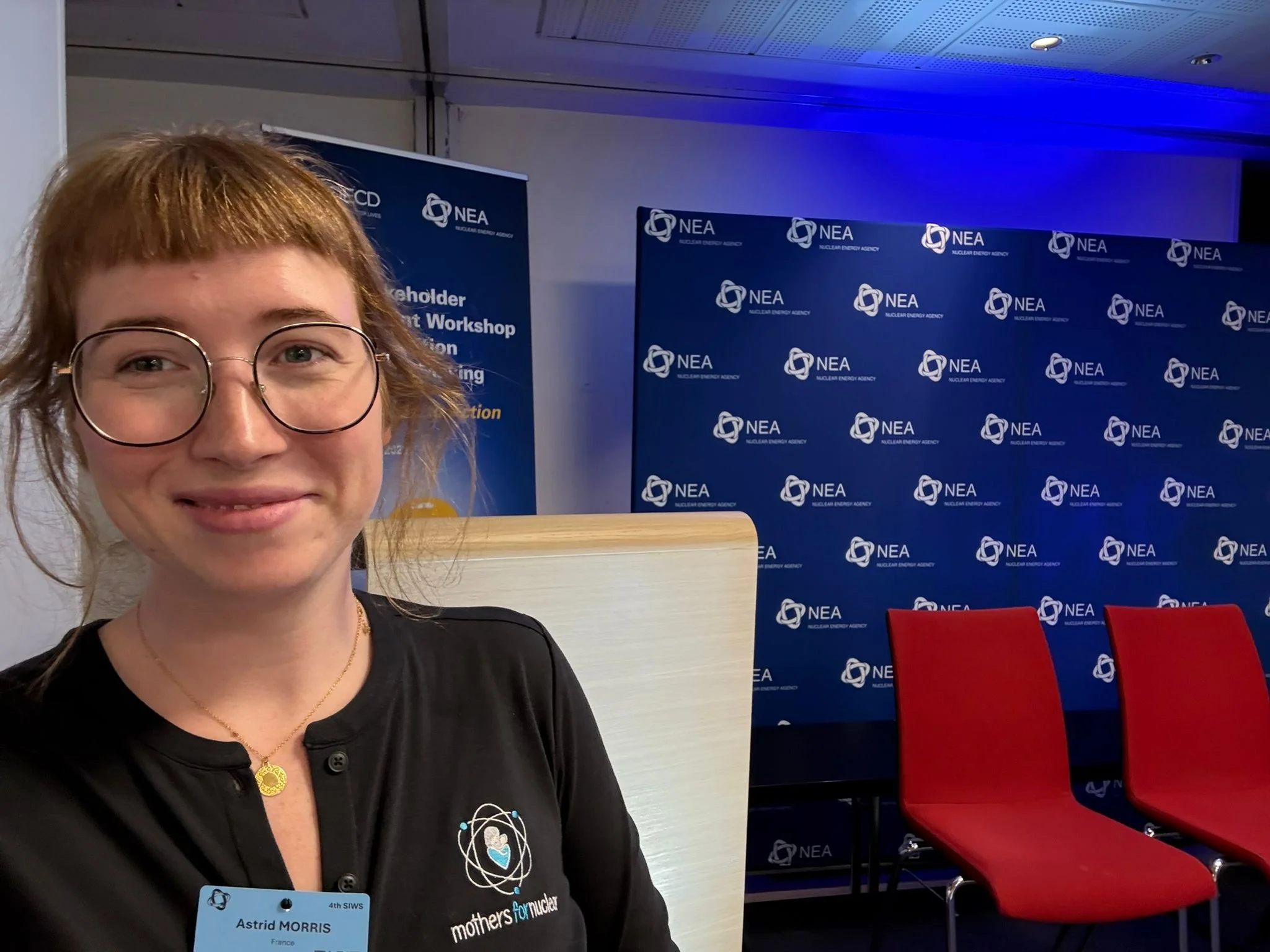NEA Stakeholder Involvement Workshop
By: Astrid Morris
Thanks to Astrid Morris, a really amazing Mum for Nuclear for representing us at this event. Check out her Stand Up for Nuclear Ally of the Month story!
On October 15th, I found myself walking through the crisp Paris morning toward the OECD headquarters, equal parts excited and nervous, to take part in the Fourth NEA Stakeholder Involvement Workshop. The feeling was that familiar mix of optimism and resolve that comes when you know people are gathering to talk honestly about nuclear energy, communities, and quality engagement practices.
This workshop was the latest in an ongoing international conversation about how to make nuclear decision-making more inclusive, transparent, and humane. Various case studies on nuclear engagement were presented and discussed so groups around the world could learn from each other, benchmark best practices, and share experiences in a way that can build momentum for the future of nuclear energy. People had flown in from 23 countries. Regulators, researchers, local leaders, NGOs, industry folks, academics, indigenous representatives, activists, and just about every other stakeholder you could think of. It was a rare space where all of us who care deeply (and sometimes disagree deeply) about nuclear issues could sit at the same tables and explore what “optimized decision-making” actually looks like in practice.
This time, I had a special role. I had been deputized to present on Mothers for Nuclear’s involvement in the DOE’s Collaboration-Based Siting work, a responsibility I felt honored and a little awed to carry.
Carrying the Mothers for Nuclear story into the room
Heather had kindly mailed me some Mothers for Nuclear merch ahead of time: a shirt, socks, stickers–the small tokens that often spark conversations far bigger than they seem. It turns out they worked exactly as intended. A few people spotted my shirt, came over, and said, “Wait… I’ve heard of you!” Others admitted they’d never heard of Mothers for Nuclear and were pleasantly surprised to learn that we’re grounded in compassion, transparency, and a desire to connect with everyday people rather than “win an argument.”
Even in an international expert forum, those small personal bridges matter.
Before presenting, I was thoroughly briefed by Fereshteh Bunk, Paris Ortiz-Wines, and Heather Hoff. Their insights were so important, both the technical aspects of the DOE engagement process and the lived lessons on how we show up, how we listen first, how trust is built in real human interactions, and why care and empathy are as essential as policy and procedure. I felt like I was carrying the collective wisdom of the team.
And I wasn't alone. Several others in the room had participated in the Collaboration-Based Siting workshops as well, though representing different organizations or case studies. Mothers for Nuclear’s dear friend and consortium colleague, Lisa Marshall, was in attendance, sharing her unique experience in the CBS program. It was heartening to see just how much institutional memory existed in this stakeholder-engagement community. I encouraged people to talk to those who had been part of the process. This success story belongs to everyone who showed up, in any way, in the CBS process.
We were honored to have another member of our CBS team at the workshop, also sharing the experiences from her perspective. Thanks Lisa Marshall for your dedication and relentless energy to keep showing up at so many impactful events.
Debate, curiosity, and the question of “who should do this work?”
After my presentation, the discussion got lively. One recurring theme was the composition of stakeholder engagement teams, whether people working within the nuclear sector might appear “too biased,” and whether academic or more traditionally “neutral” voices should be more prominent.
It’s a fair question and it’s not new to Mothers for Nuclear.
We’ve faced similar concerns in many of our workshops: the idea that caring deeply about nuclear energy might disqualify you from being trusted. But what we’ve learned, and what I shared with the group, is that thoughtful facilitation can create space for a diversity of views, even when facilitators themselves are not “blank slates.” In fact, our experience is that transparency about our values, paired with genuine curiosity about others’, can open the door to meaningful dialogue rather than shut it down.
In the Collaboration-Based Siting work, Mothers for Nuclear intentionally moderated our approach to allow more viewpoints and standpoints to thrive in the room. And it worked. Participants felt heard, and skeptics stayed engaged. So yes, the debate was valid, but it was also evidence that people care deeply about getting this right.
Walking away inspired
Throughout the workshop, I kept being surprised by something: the nuclear community is learning how to listen better. Not just to experts or to people who agree, but to those who bring different histories, different fears, and different lived experiences. We’re learning that stakeholder engagement is about people and acknowledging past harms, building trust slowly, and creating processes that are more equitable than anything our sector has done before.
And in that context, Mothers for Nuclear has a meaningful role to play. Our story resonates because it’s rooted in motherhood, care, and a desire for a safer, more stable climate future. And when people hear it for the first time, you can see the shift.
By the time the workshop wrapped up, I felt more inspired than when I arrived. Being surrounded by so many thoughtful, passionate people, people working across cultures, disciplines, and continents, reminded me that this work is both global and deeply personal.
I felt really grateful for the opportunity to bring Mothers for Nuclear into a space where our voice added something unique to a complex and evolving dialogue about how we make decisions that will shape generations!
Mothers for Nuclear was also so grateful to have Astrid Morris representing us at the NEA Workshop. Astrid is a very skilled communicator and dedicated Mother for Nuclear. Our volunteers and chapter leads across the globe are integral to our visibility and engagement.
